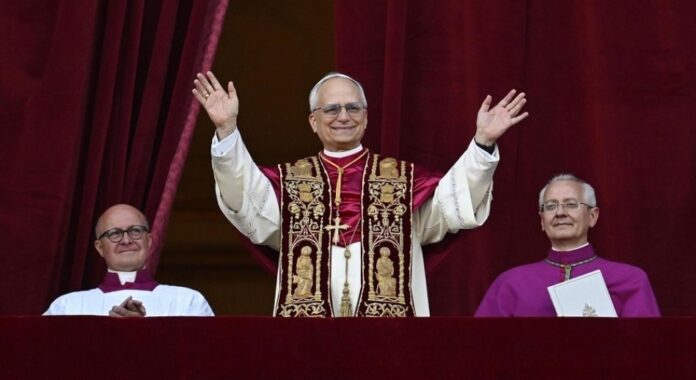After days of global expectation and internal negotiations, the Catholic Church consecrated its new leader: Robert Prevost, renamed “Leo XIV,” was elected by the Conclave as Pope Francis’ successor.
The announcement came after a Conclave that lasted two days and a total of five votes, the same as during Francis’ election. Thus, the white smoke was seen at approximately 1:07 PM (Argentine time), and thus, the Catholic Church announced to the entire world the arrival of a new Pope.
The Conclave began last Wednesday, May 7, when the 133 cardinals locked themselves in the Sistine Chapel. A little over two weeks after the Argentine’s death, the cardinals began their mission to elect the new leader of Catholics.
The Church stated—from the beginning—that they were seeking a quick Conclave. “In less than three days,” the Holy See had assured, with the aim of demonstrating internal unity to its faithful around the world.
Finally, the 133 cardinals quickly reached an agreement: Prevost was elected during the second day of the Conclave. In detail, the Italian was elected during the fifth ballot—the fourth this Thursday—and was presented at dusk in Rome, Italy.
Born in Chicago in 1955 and raised in a Catholic family with working-class roots, Prevost joined the Order of Saint Augustine in his youth, driven by a missionary vocation that was consolidated with his studies in philosophy and theology at the Catholic Theological Union and later in Rome, where he earned a doctorate in Canon Law.
He was ordained a priest in 1982 and soon began a journey that would take him outside the United States, distancing him from the comfort of academia to serve the peripheries.
Prevost’s ministerial beginnings date back to Peru, where he worked as a missionary in the impoverished diocese of Chulucanas, in the north of the country. There, he stood out for his pastoral work based on closeness, community building, and the defense of human rights, an experience that shaped his profile as a religious man committed to the Latin American social reality, capable of combining doctrinal rigor with a pastoral approach sensitive to the most vulnerable.
Since 2023, he has held the strategic position of Prefect of the Dicastery for Bishops, a position the Argentine bishop—who also ordained him a cardinal in 2014—placed him as the Pope’s principal advisor on the appointment of bishops worldwide. This role, coupled with Francis’ explicit trust, has given him a privileged place in the Vatican’s power structure, where he stands out for his sober style and discreet public profile, yet wields significant influence both in the Americas and in Rome.
However, his career has not been without controversy. During his time in Peru, his administration was questioned for alleged cover-ups in cases of abuse within his diocese. Although he faces no formal charges, the media allegations have tarnished his image, especially among those demanding greater transparency in the Church.
With his fluent Spanish, his affinity with Latin American culture, and his closeness to the thinking of Pope Francis, Robert Prevost arrives at the throne of St. Peter as a candidate who represents the continuity of Francis, albeit without the expansive charisma that characterized the Argentine pontiff. Furthermore, his 69 years of age make him a young Supreme Pontiff who promises to have a long term at the head of the Church.
In the Vatican, some describe him as a “bridge” between two Churches: the institutional and the popular; that of the global North and that of the South. In a context where names from Africa, Asia, and Latin America were heard, a North American—with experience in Latin American soil—finally appeared as an unexpected apparition.
The current conclave took place at a crucial moment for the Catholic Church, marked by challenges such as secularization, internal polarization, and the need to continue the reformist legacy of Pope Francis. In this context, Prevost represents a commitment to balance: close to the Argentine pope’s ideals, but with the institutional character and sobriety that many cardinals consider essential in times of change.






